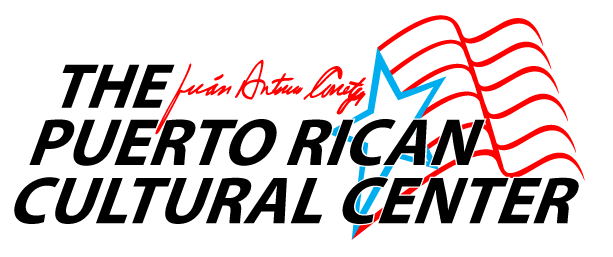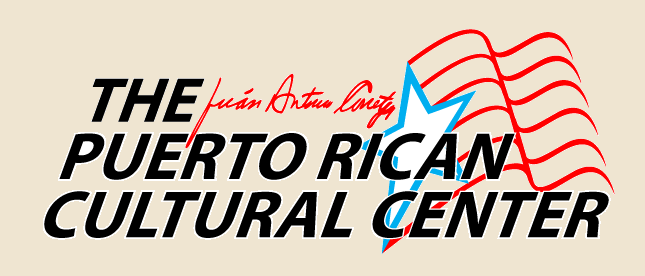JAYUYA, Puerto Rico — Ernesto Davila Marin was in elementary school when rebellion interrupted class. As he left the schoolhouse that October day, black smoke rose from the town center where nationalists had set Jayuya ablaze, shooting police officers and declaring the independent republic of Puerto Rico from a rooftop.
In the struggle for sovereignty from American colonial rule, Puerto Rican independence fighters staged uprisings in nearly a dozen cities that day in 1950 and later attempted to assassinate President Harry S. Truman. They held the central mountain city for three days until U.S. Air Force bombers packed with payloads buzzed over the emerald peaks.
Davila Marin’s uncle and four cousins participated in what was among the last of many cries for independence on the island. Today, the retiree has converted his basement into a “martyr’s museum,” with newspaper photos of rebels’ bullet-riddled bodies and paintings of nationalist leader Pedro Albizu Campos.
“It was one of the only times in history that the U.S. bombed its own citizens,” Davila Marin said, as the septuagenarian sat in a rocking chair staring across rooftops in the Coabey barrio. “We have to find our own way.”
Talk of independence feels distant to Puerto Ricans still recovering seven months after Hurricane Maria, the worst natural disaster to strike their tropical island.
[In Puerto Rico’s ‘last mile,’ power is still elusive as next hurricane season looms]
But what Puerto Rico is to the United States has everything to do with why power restoration has been slow, why millions in federal dollars for reconstruction have yet to be disbursed and why so many felt disrespected when President Trump shot paper towels like three-pointers into a crowd of storm survivors.
The humanitarian crisis created by Hurricane Maria has added fuel to an ongoing power struggle for the island’s future: Gov. Ricardo Rosselló and his New Progressive Party advocate statehood as the solution to Puerto Rico’s second-class status. His opponents call for greater autonomy from the United States and, for some, eventual independence.
The U.S. government has shown no interest in affecting the status quo, and many Puerto Ricans still view the current relationship as a relatively stable option that provides an adequate balance of sovereignty and support.
But the sluggish disaster response and dissatisfaction with the coordinated recovery efforts have aggravated the sense of abandonment and the sting of Puerto Rico’s subordinate standing with the United States, according to residents, experts and island leaders.
Raising the stakes, Rosselló has refused to implement pension cuts and other austerity measures that a federal oversight board imposed on the bankrupt territory, challenging the panel’s authority over Puerto Rico’s finances.
“The colonialism is raw right now,” said sociologist Hector Cordero-Guzmán of Baruch College, City University of New York.

When the island’s first democratically elected governor, Luis Muñoz Marín, brokered a deal with Congress in the 1950s that allowed the territory to manage its own government and affairs, many believed it put Puerto Rico on the path to decolonization. The island, which the United States had acquired in the Spanish-American War of 1898, was designated a “free associated state,” or commonwealth, under its new constitution.
But despite U.S. citizenship and democratization, Puerto Ricans were disenfranchised from national politics. Residents cannot vote for president. And yet, Puerto Rico’s laws, political status and destiny are subject to the governance of the U.S. Congress.
[Exodus from Puerto Rico grows as island struggles to rebound from Hurricane Maria]
In 2016, Congress set up a financial oversight board charged with restructuring Puerto Rico’s debt and overseeing its spending, a move that sparked protests by islanders who viewed it as a paternalistic overreach by the U.S. government. The board is pushing austerity measures that double tuition at the public university, cut pensions, consolidate government agencies and reform labor laws to curb vacation and sick leave.
Artists, in response, turned Puerto Rico’s flag black and splashed the image on walls of the capital city.
“The relationship needs to adapt to modern times,” said Carlos “Charlie” Delgado, secretary general of the Popular Democratic Party, which supports commonwealth status but seeks greater autonomy from the United States. “It’s unacceptable, democratically speaking, to have a foreign country control another country’s government via a board of unelected leaders. That is not a democracy.”
Puerto Rico has held five plebiscites since 1967 to gauge the preference for statehood, independence or something else mirroring sovereignty. But political maneuvering, odd ballot wording and boycotts marred the results.
Congress blames the island’s political divisions and unclear referendum results for its unwillingness to start decolonization.
“Every time the status question comes up, they use that pretext not to take action,” said Fernando Martín, executive president of the Puerto Rican Independence Party. “They tell us, ‘Puerto Ricans need to get their act together,’ without saying that they do not want to deal with the issue.”

Puerto Rico’s political party system, which is oriented around the resolution of its colonial status, also has played a role in the paralysis, academics say. In recent years, they note, those parties have done little to advance the central cause of their existence.
“The political parties are politically and ideologically bankrupt,” said Pedro Cabán, a professor at the State University of New York in Albany. “None of them are offering a vision for the future.”
Since 2000, no Puerto Rico governor has served more than one term. For decades, corruption and cronyism have inundated the two major parties, the pro-statehood New Progressive Party and the pro-commonwealth Popular Democratic Party.
“Parties are not unimportant, but they’ve lost their north,” said Alexandra Lúgaro, a 2016 gubernatorial candidate, at a recent decolonization forum at the University of Puerto Rico in Rio Piedras.
During the race, Lúgaro did not affiliate with a party and took no position on the issue of Puerto Rico’s political status. She won 11 percent of the vote, an unprecedented tally for such candidates.
Puerto Rico’s political parties “have monopolized and cannibalized the debate on status to win elections and move their base,” Lúgaro said. “It is an electoral strategy.”
Rosselló won the governorship in 2016 with the smallest share of votes in Puerto Rican history. Still, he promised to bring about a final resolution to the question of the island’s status.
Six months in, his government held a plebiscite in which 97 percent chose statehood. But only 1 in 5 eligible voters cast a ballot. Most boycotted.
Congress took no action, but Rosselló viewed the vote as a mandate and, with his party, appointed members to a statehood commission or “shadow delegation” — three Republicans, three Democrats and one independent — to roam the halls of Congress asking for their seats and Puerto Rico’s admission to the union. The would-be representatives and senators include three former governors and baseball Hall-of-Famer Iván “Pudge” Rodríguez.
The commission peppers social media with photos of their meetings with lawmakers and letters of support from organizations such as the NAACP.
“Ask yourself, if New Jersey or Connecticut had been without power for six months, what would have happened?” said Puerto Rico’s Resident Commissioner Jenniffer González, who holds a nonvoting role representing the territory in the House. “This is about spotlighting inequities and helping Congress understand why we are treated differently.”
González said she will file a bill this spring petitioning for statehood and is counting on the growing Puerto Rican diaspora on the mainland to pressure lawmakers.
There is no indication such a bill would pass. Legislators have said the votes to make the island a state do not exist. With 3.3 million residents before the hurricane — ranking it just below Connecticut — Puerto Rico could be a sizable force in Congress.
“Granting statehood means granting seven seats to the Democrats,” University of Connecticut professor Charles Venator Santiago said. “Statehood has been dead for decades.”
Culture creates another impediment. Business and everyday life in Puerto Rico are conducted in Spanish, and the island’s cultural identity aligns more with Latin America than the United States.
Still, statehood has some supporters in Congress. Rep. Steny H. Hoyer (D-Md.) supports decolonization, because he believes the status quo is at odds with the United States’ democratic values.
“It places us in a position of looking like colonialists,” he said. “It would be difficult to pass legislation on statehood today, but not impossible.”
Former governor Pedro Rosselló — the current governor’s father — said Puerto Rico’s humanitarian crisis and slow recovery from Hurricane Maria have created an opportunity for the pro-statehood community to educate and re-energize the debate.
“We feel that a lot of the discussion about unequal treatment in response to the hurricane are merely the symptoms of a condition with a root cause: the fundamental limitation of civil rights,” he said. “As long as the U.S. has under its jurisdiction areas that, by law, do not participate fully with other citizens, the United States is not a republic. It’s an empire.”

The first shirt Emilio Meléndez printed for his apparel line, Pícalo, was a green T-shirt emblazoned with a simple formula: 100 x 35 ? 51
It is one of the best-selling items — and the most controversial — at El Nido, Meléndez’s trendy year-old shop in Bayamón. The numbers refer to Puerto Rico’s length and width in miles and the desire to become the 51st state.
“What we wear is how we identify,” the 33-year-old entrepreneur said. “I identify with this, and those who want to resist the current political situation see themselves in it, too.”
When Meléndez could not find work after studying sociology at the University of Puerto Rico, he wanted to be self-sufficient. So he turned to business with a plan to build an economy within an economy by using only locally sourced products, promoting island designers and networking with other young Puerto Rican entrepreneurs.
It was a model that proved useful in the wake of Maria’s devastation. Where governmental help felt distant, or even nonexistent, neighbors, churches and local nonprofit organizations pooled their food, clothing and other resources to solve problems in their barrios.
Some efforts spawned grass-roots community projects focused on self-empowerment, economic independence and sustainable living through agriculture.
“When help didn’t come quickly enough, neighbor had to help neighbor to survive,” said Meléndez’s wife, Vanessa Cardez. “What did we learn? That we have the capacity within ourselves to solve problems.”
Christine Nieves, who studied social entrepreneurship at the University of Pennsylvania and Oxford University, returned to Puerto Rico a year ago to help others open businesses and build sustainable economic development projects with minimal government involvement.
She leads an organization in the Mariana community on the island’s east side that helped feed, clothe and entertain residents after the hurricane amid the absence of water and electricity.
“The only way we end colonialism is when people feel what it means not to be colonized,” said Nieves, 29.
“Everything that we’ve experienced so far is top-down from the government or federal government. Top-down is not going to make a difference,” she said. “The question is, how do you change things from the bottom-up?”
It is a model that Alexis Massol González has been waiting to see replicated across Puerto Rico for 38 years: people taking back control from an ineffective government. He was one of the founders of Casa Pueblo, which began as an environmentalist fight against mining in the municipality of Adjuntas and became an experiment in energy independence and economic autonomy. The organization bought a building that runs on solar panels and sustains itself through a coffee cultivation and roasting business, music school and gift shop. Its radio station continued transmitting throughout the hurricane as communications broke down island-wide.
Massol González blames colonialism for what he sees as Puerto Rico’s dependence on the federal government.
“To change our status, we need to start to change how we live,” Massol González said. “The status won’t change on its own. It will come from a people that learns to value themselves, respect themselves and look for their own alternatives apart from government dependence.”






